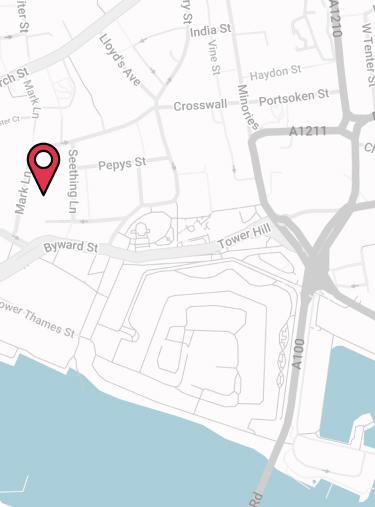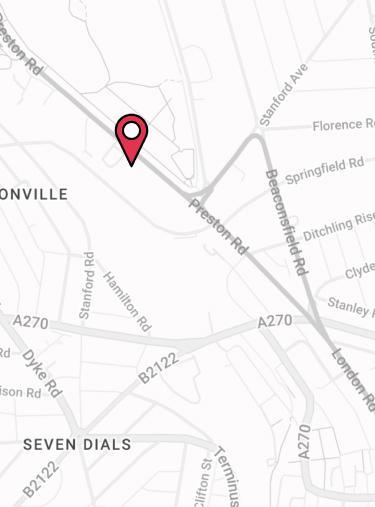The One Life Insurance Mistake That Could Cost Your Family Thousands
When you take out Life Insurance, you’re doing it for one reason: to protect the people you love. Whether it’s your partner, children, or other dependents, you want to ensure they’ll be financially secure if the worst happens.
But there’s a critical step that many people overlook, and it could cost their families dearly. The 2025 Drewberry Individual Protection Survey found a staggering 90% of UK adults either haven’t placed their Life Insurance in trust, or don’t know if they have. It’s a mistake that could see Life Insurance payouts delayed, taxed, or even disputed at a time when your loved ones need the money most.
What Is a Trust, and Why Does it Matter?
A trust is a simple legal arrangement that allows you to protect your Life Insurance payout. Rather than forming part of your estate when you die (and potentially being caught up in probate or inheritance tax), the money in trust is passed directly to your chosen beneficiaries, often quickly, tax-free, and with far less hassle.
Yet despite its importance, only 10% of policyholders are confident they’ve set this up correctly, according to our survey, and a further 34% aren’t even sure!
Not writing your policy into trust can delay things, creating difficulty for the people you want to protect most. Seeing as 26% of survey respondents said their payout is the main way they’d support their family if they passed away, it risks reducing or delaying the very funds families are relying on in their darkest hour.
With your life cover in trust, the payment goes straight to your beneficiaries after your death. This can offer your loved ones immediate cash at hand, which might be required while the remainder of the estate is tied up in probate.
A Simple Step That Makes a Big Difference
Our survey shows a huge gap in awareness where trusts are concerned. Knowing all the benefits, most people wouldn’t choose to leave their policy out of trust. They simply don’t know it’s an option, or they believe it’s something only high-net-worth individuals need to worry about.
Anyone with Life Insurance and dependents should consider using a trust, regardless of their wealth. In fact, many insurance providers offer this service free of charge when you take out your policy with them. It’s simple, straightforward, and could save your family thousands of pounds and months of heartache.

Writing Life Insurance into trust may sound complicated, but it’s something we help people with on a daily basis. It only requires a few signatures on a couple of forms, or you can even do it online. Call us on 02084327333 to talk through your options.
Rauri Taylor
Independent Protection Adviser
The Hidden Dangers of Not Using a Trust
Here are just a few of the financial and emotional pitfalls your loved ones may face if your Life Insurance policy isn’t in trust:
1. Inheritance Tax Could Eat Up 40% of the Payout
Without a trust, you risk your Life Insurance payout being counted as part of your estate, and therefore subject to Inheritance Tax at 40% if your estate exceeds the tax-free threshold (currently £325,000 or £500,000 if your main residence goes to direct descendants).
Let’s say you have a Life Insurance policy worth £300,000. If it’s not in trust and your estate already exceeds the IHT threshold, your family could lose up to £120,000 of that payout to tax.
2. Probate Could Delay the Money for Months
Even if your policy isn’t subject to tax, not putting it in trust means the payout will likely be tied up in the probate process (the legal procedure to distribute someone’s estate).
Probate can take months, or even over a year in complicated cases. In the meantime, your family might be unable to access the very funds you intended to help them cover the mortgage, daily bills, or funeral expenses. In a time of grief, this kind of uncertainty and delay adds significant stress, and can lead to short-term financial worries at the worst possible moment.
3. Your Payout Might Not Go Where You Intended
26% of survey respondents said their Life Insurance payout is the main way they’d support their family financially if they passed away. And yet, most are unintentionally putting that safety net at risk.
Without a trust, the payout from your policy goes into your estate and is distributed according to your will — or, if you don’t have one, according to the laws of intestacy.
This could mean:
- Ex-partners or estranged family members getting access to funds
- Children receiving money before they’re emotionally or financially ready
- Delays or disputes between relatives, creating tension and legal complications.
A trust allows you to clearly specify who gets what, and when. You can even appoint trustees to manage the money on behalf of children until they reach a certain age. Read more about Life Insurance trusts.

IHT is charged at 40% on all assets a single individual owns worth more than £325,000. Clearly, a substantial Life Insurance payment could easily push your estate above this threshold and see it swallowed by a bill from HMRC. Setting up a trust is vital to protect the finances you’ve left your loved ones.
Samantha Haffenden-Angear
Independent Protection Adviser
Trusts Are Simple With Independent Advice
Another key finding in the 2025 survey is that 84% of people buy insurance without speaking to a financial adviser.
This could be why so many overlook trusts entirely. When you buy directly from an insurer or through a comparison site, trust planning is often treated as an afterthought, if it’s mentioned at all.
But when you speak to a qualified, independent adviser (like our team at Drewberry), we make sure the policy is fit for purpose, and structured properly to benefit your family. Because the job isn’t done when the policy is sold. It’s only done when your family is protected, in the right way, at the right time.
Don’t Let An Admin Oversight Affect Your Loved Ones
Life insurance is one of the most important financial products you’ll ever buy. It’s an act of love, and a safety net for your family when they need it most.
But good intentions aren’t enough. Without proper setup, your policy might fall short just when your loved ones need it to deliver. Writing your policy into trust is simple, fast, and often free, but the benefits are profound.
We’re not only here to help you buy Life Insurance, but to help make it work. That means tailored advice, smart structure, and genuine peace of mind.
If you’re unsure whether your existing policy is in trust, or you’re looking to take out new cover, we’re here to talk through your options. Call us on 02084327333, or email help@drewberry.co.uk.
Other Top Stories From the Report
- Only 1 in 11 Brits Have Income Protection: Why We’re Failing to Protect Our Most Important Asset
- Protection Insurance in 2025: It’s Not As Expensive As You Think
- Own or Rent? Either Way, Your Home Depends on Your Income
Why Speak to Us?
When it comes to protecting yourself and your finances, you deserve first-class service. Here’s why you should talk to us:
- There’s no fee for our service
- We’re an award-winning independent insurance broker, working with the leading UK insurers
- You’ll speak to a dedicated specialist from start to finish
- 4090 and growing independent client reviews rating us at 4.92 / 5
- Claims support when you need it most
- We’re authorised and regulated by the Financial Conduct Authority. Find us on the financial services register.
- Topics
- Life Insurance
Contact Us
125-135 Preston Road
Brighton
BN1 6AF
Cookies
Drewberry™ uses cookies to offer you the best experience online. By continuing to use our website you agree to the use of cookies including for ad personalization.
If you would like to know more about cookies and how to manage them please view our privacy & cookie policy.









